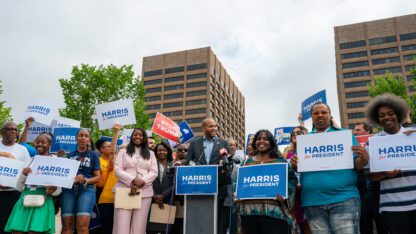Parents Split On In-Person Versus Remote Learning As School Year Gets Closer
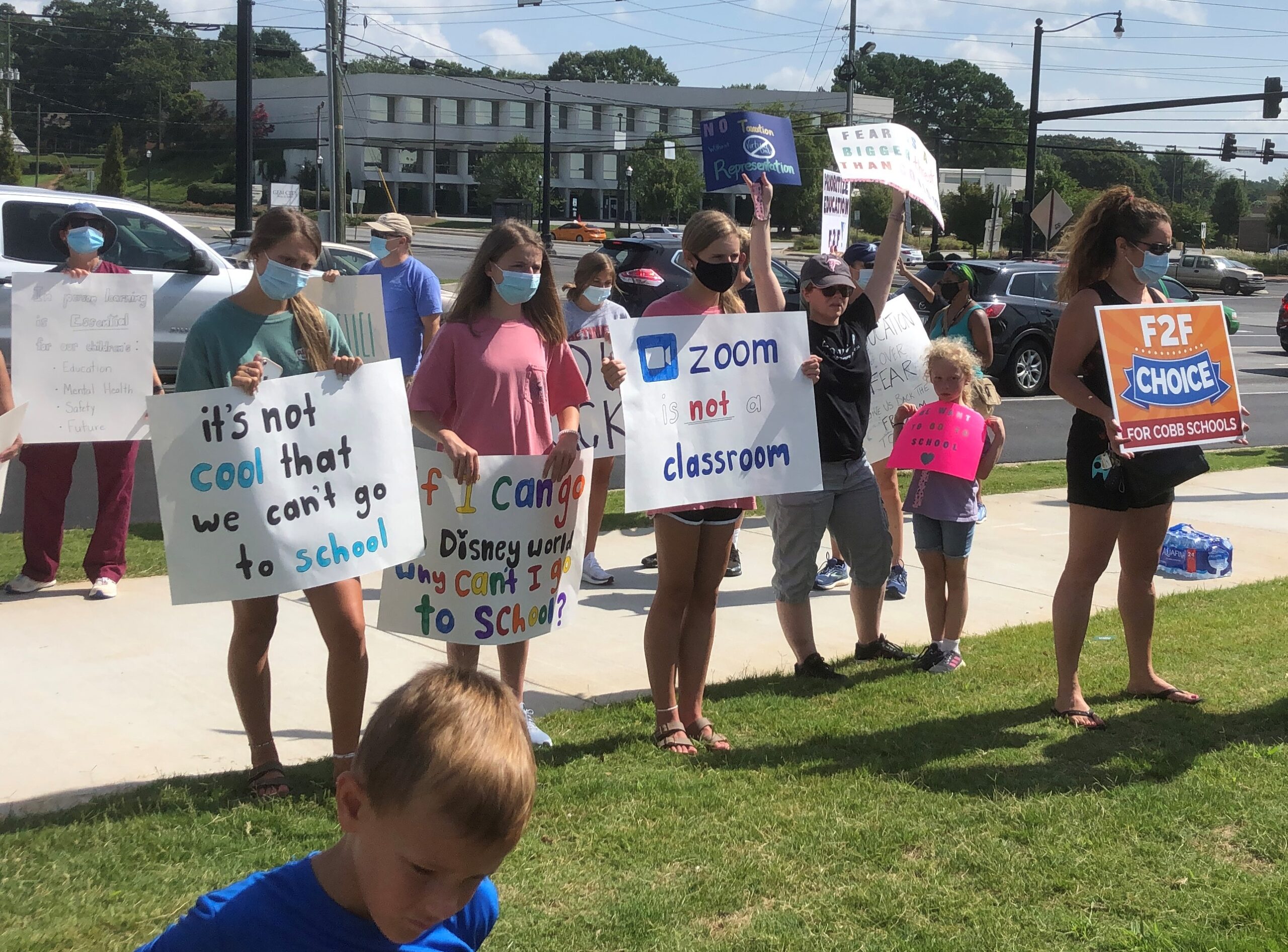
At a protest, some parents brought their kids who seemed to want to go back to school rather than begin fall semester remotely.
Martha Dalton / WABE
When the 2019-20 school year ended, most metro Atlanta public school students spent the last part of the spring semester learning remotely.
As school districts started to plan for the upcoming school year, some — including Cobb, Gwinnett and Fulton counties and the Marietta City Schools — told families they’d be able to choose between in-person and virtual learning.
However, when coronavirus cases spiked in July, most school systems reversed course and decided to start the year 100% remotely.
That upset some parents, who think they should still have a choice to send their kids to school in-person.
‘Who’s Speaking For These Kids?’
Parents in Gwinnett and Cobb counties have held in-person protests recently, urging the school districts to reinstate a face-to-face learning option.
Their concerns are pretty common: how will working parents oversee remote learning? What about kids with special needs? What if a child just doesn’t learn as well virtually?
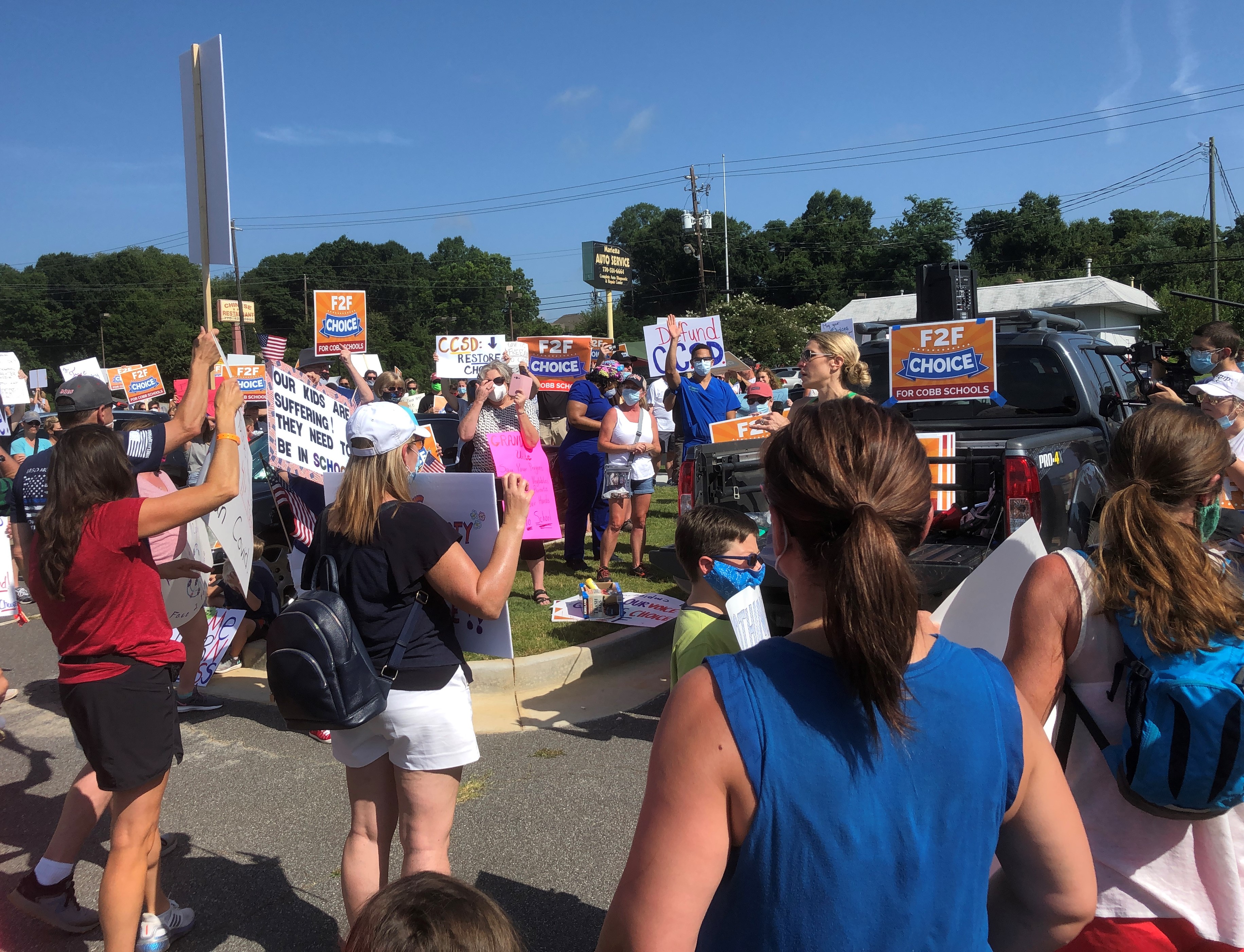
“How many kids right now are not getting what they deserve or not getting what they need?” parent and registered nurse Chrissi Feussner told a crowd of Cobb County families. “They’re falling through the cracks. Nobody is tracking them. Who’s taking care of these kids? Who’s speaking for these kids?”
Some of the kids actually spoke for themselves, like one elementary school student named Harper, whose parents both have to work.
“I can’t go to my grandparents’ house because me and my brother will probably get distracted there,” she told the crowd. “And so, we’re going to our friend’s house, but if we can go to our friend’s house, we should be able to go back to school.”
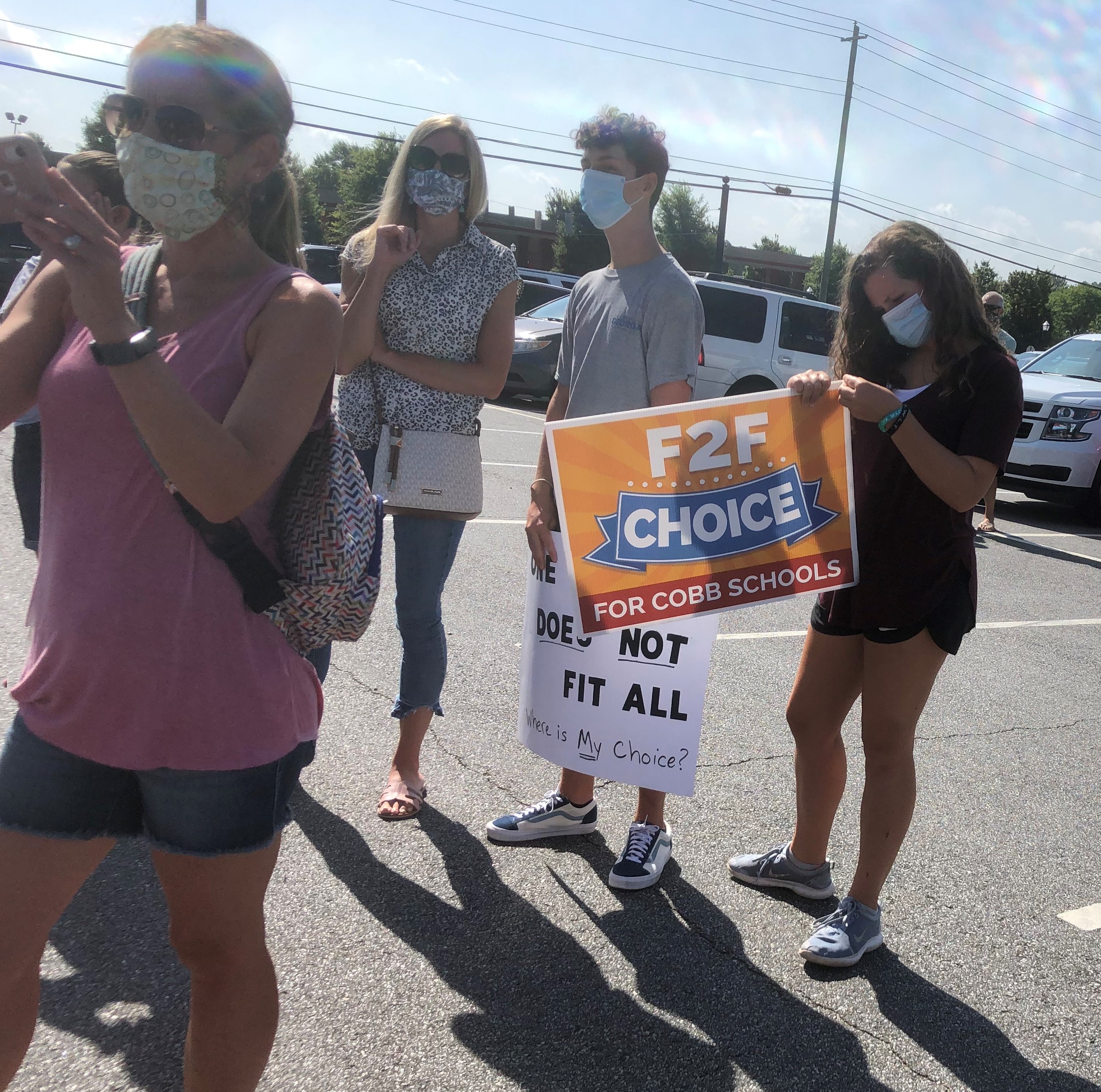
Cobb has said it will phase in face-to-face learning when it’s safe to do so. Other districts, like Fulton and Gwinnett, have said they’ll try to bring students back in a few weeks if COVID-19 cases drop.
But some parents say they’re willing to take the health risks that accompany an in-person return to school.
“We all have health concerns,” said one father who didn’t want to be identified because he says the issue has become so polarized. “I’m self-employed. I don’t want to be out and about in this kind of environment, but the reality is we can’t stop life. Life continues to go on.”
‘It’s Not Ideal …’
Parents, teachers and public health experts seem to agree it’s ideal for kids to be back in school. Virtual learning isn’t as effective for most students, studies show.
But they disagree on whether it’s safe to send kids back to classrooms as COVID-19 cases remain high in Georgia.
Sarah Davis’ daughter will start kindergarten online at an Atlanta charter school this year.
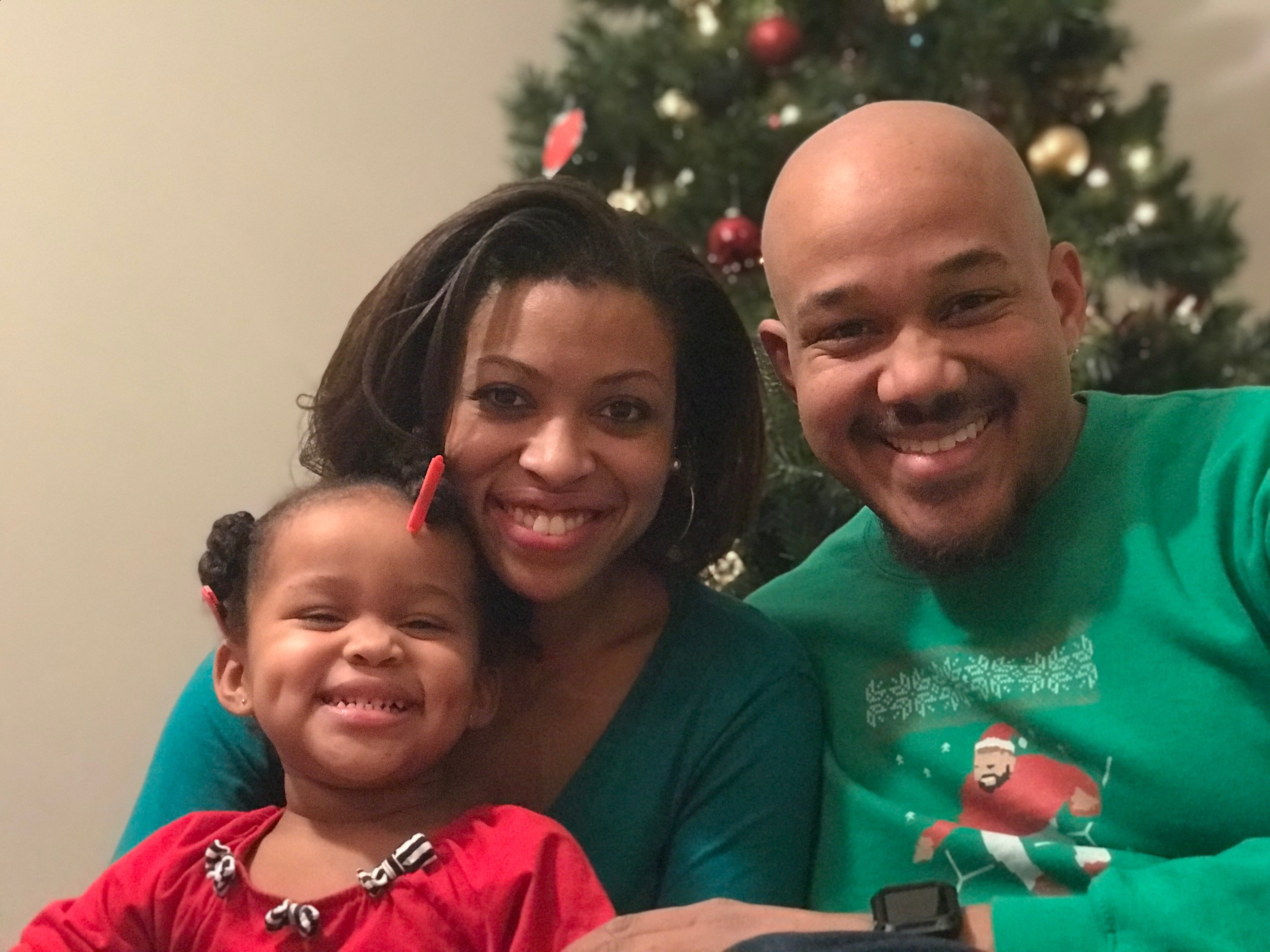
“It’s not ideal by any means,” Davis says. “But … I think something not being necessarily ideal doesn’t make it terrible and doesn’t make it wrong, especially when we’re contemplating safety.”
Last spring when the pandemic hit, Davis was teaching middle school. As much as she’d like her daughter to meet her kindergarten class in person, Davis says, from a teaching standpoint, it doesn’t seem practical.
“When we heard the CDC recommendations, it just felt, I won’t say impossible, it just felt unlikely to be able to maintain those safety precautions and also navigate teaching the way we’ve all known to teach,” she says.
Those recommendations include limiting the number of students in classrooms and buses and increasing cleaning efforts throughout school buildings.
It’s not ideal by any means. But … I think something not being necessarily ideal doesn’t make it terrible and doesn’t make it wrong, especially when we’re contemplating safety.
— Sarah Davis, mom and former teacher
The switch to online learning last spring also revealed inequities that had long existed in schools, Davis says.
“I do think this is a really important time because we can be more innovative and think outside the box and make education better as a structure in a way that like we never would have done any other time,” she says. “Not because we didn’t see that there were cracks in the system, but more so because we’ve done what we’ve always done, and the thought of changing that is just very scary and daunting.”
No Simple Choices
School district officials have said other factors in deciding whether to offer in-person learning were the questions they couldn’t answer: Can we mandate masks? If we can, how do we enforce it? What would the consequence be for not wearing a mask?
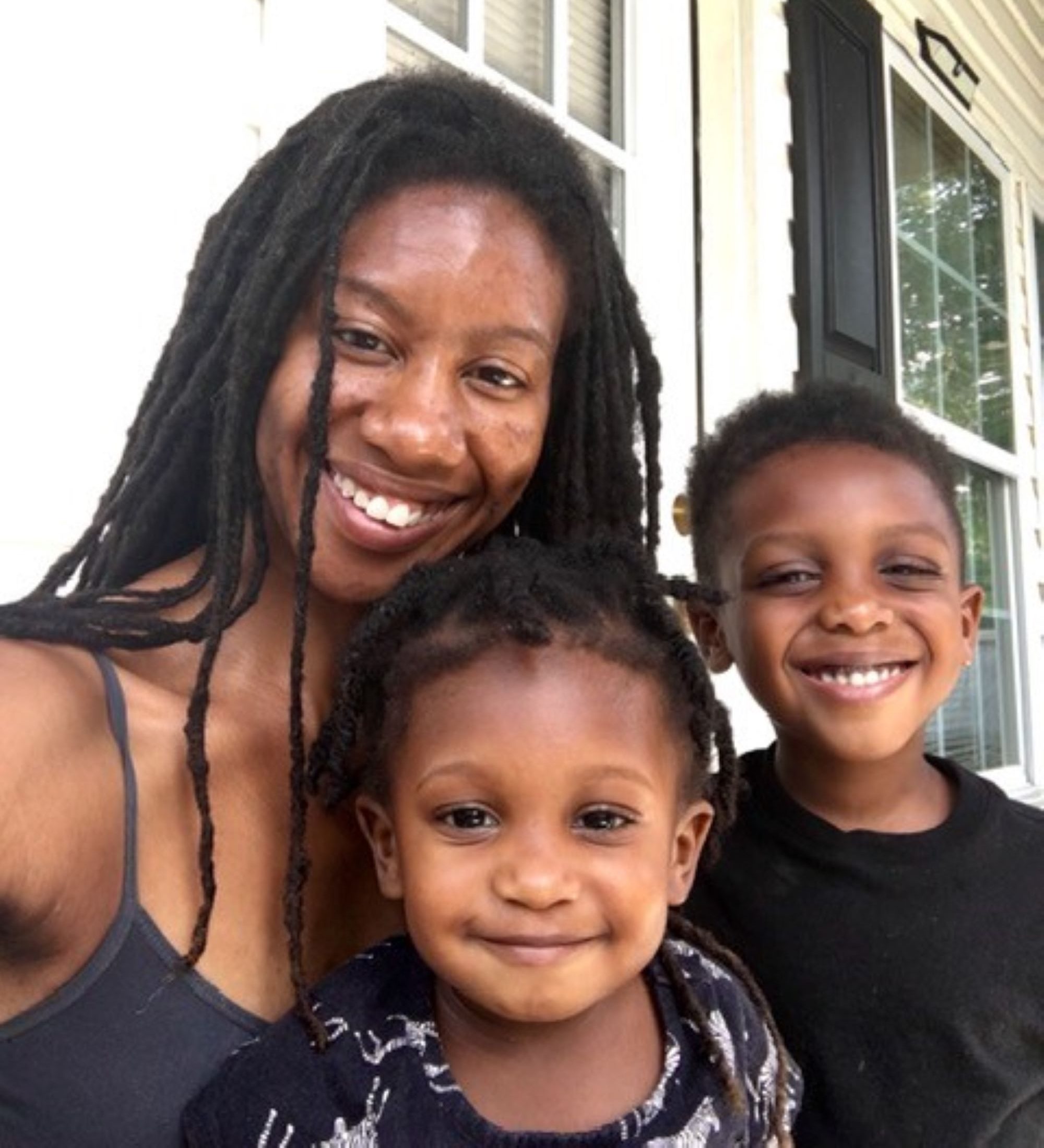
Clintisha Flemming says that could be a challenge for her 4-year-old son who’s starting pre-kindergarten virtually at Atlanta’s Benteen Elementary this year.
“My son … when we go into the store, the funniest thing for him to do is to take the mask off and fling it at me,” she says. “I don’t know how long he’s going to keep his mask on. Maybe these other people have angel children that will do it, but my child does not.”
Flemming and her husband are able to work from home. Even though she thinks starting the year remotely is the right thing to do, she hopes her son won’t have to do it all year.
“He needs to interact with other children his age, and he needs to learn that there are other authority figures that have to tell you what to do,” she says.
Because so much of early education is hands-on learning, Benteen is sending home materials so parents can work with their kids at home. But Flemming knows he’ll miss some of the social aspects of in-person school.
“When you’re in school, you have to raise your hand, like things like that,” she says. “He doesn’t know you have to sit at the table the whole time. You don’t just get up in the middle of a meal. I’m sure you’re not going to let [students] run around the lunchroom.”
Some parents have had to make tough choices, even if they agree with the decision to start remotely. That’s the case for Olivia Henderson, a single mom of an 8-year-old son. She doesn’t have the flexibility to work from home.
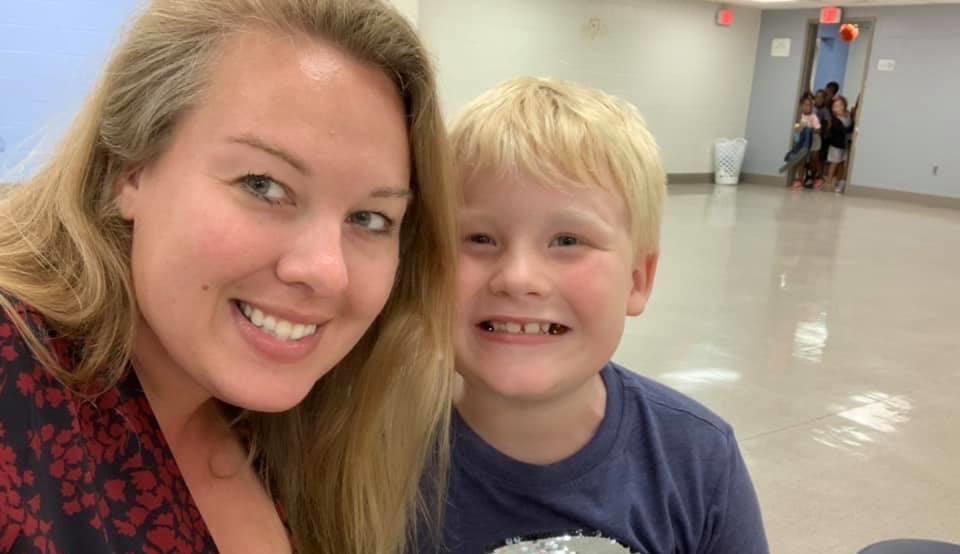
“[My son’s] school actually offered for essential workers and people who work full time outside of the home … they have some very small groups that can go to the school as an additional cost. I was able to get my son to that program, thankfully.”
But even so, Henderson would still have to leave work early to pick up her son.
She’s grateful her son’s school offers an alternative for working parents. However, she says the added expense makes things tough financially.
Some metro Atlanta districts that have resumed in-person learning have already reported cases of COVID-19. Students in both Cherokee and Paulding counties tested positive for the coronavirus the first week of school.



